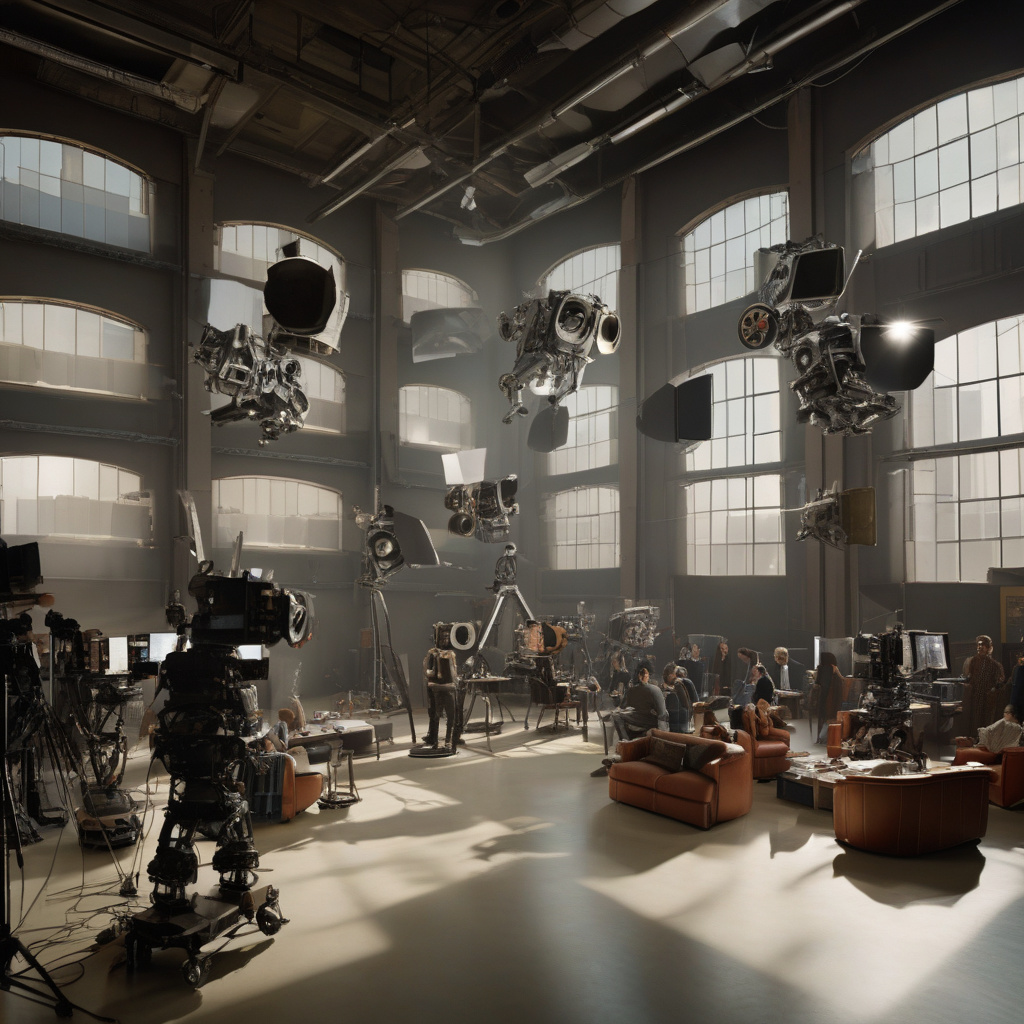The intersection of artificial intelligence (AI) and the film industry is a fascinating frontier that promises to revolutionize how movies are made, viewed, and even marketed. Experts in the field have weighed in on the potential impact of AI on this creative landscape, offering insights that shed light on the exciting possibilities that lie ahead.
One of the most significant ways AI is poised to transform the film industry is through the process of content creation. AI algorithms can analyze vast amounts of data, including audience preferences, trends, and even emotional responses to particular stimuli. By leveraging this data, filmmakers can tailor their content to resonate more deeply with viewers, increasing engagement and enhancing the overall cinematic experience.
Moreover, AI can streamline various aspects of the production process, from scriptwriting to editing and visual effects. For example, AI-powered tools can generate scripts based on predefined parameters, assist in storyboard creation, and even automate the labor-intensive task of editing footage. This not only saves time and resources but also opens up new creative possibilities for filmmakers.
In terms of audience engagement, AI holds tremendous potential to personalize the viewing experience. By analyzing viewer behavior and preferences, streaming platforms can recommend content that aligns with individual tastes, leading to higher viewer satisfaction and retention. Additionally, AI can enable content creators to craft immersive experiences, such as interactive narratives or personalized storylines, that blur the lines between passive consumption and active participation.
From a business perspective, AI can also drive efficiencies in distribution, marketing, and audience targeting. By leveraging AI-driven analytics, studios can optimize their promotional strategies, identify niche audience segments, and forecast box office performance with greater accuracy. This data-driven approach not only minimizes risks but also maximizes the potential for a film’s success in an increasingly competitive market.
However, as with any technological advancement, the integration of AI in the film industry is not without its challenges. Questions around data privacy, algorithm bias, and the potential displacement of human creativity loom large. It is essential for industry stakeholders to navigate these complexities thoughtfully, ensuring that AI is harnessed in a way that enhances, rather than detracts from, the artistry and storytelling that define cinema.
In conclusion, the impact of AI on the film industry is undeniable, offering a wealth of opportunities to innovate, engage audiences, and drive business growth. By embracing AI as a powerful tool in their creative arsenal, filmmakers can push the boundaries of storytelling, deliver more personalized experiences, and ultimately shape the future of cinema in exciting new ways. As technology continues to evolve, the marriage of AI and filmmaking holds immense promise for both creators and audiences alike.

